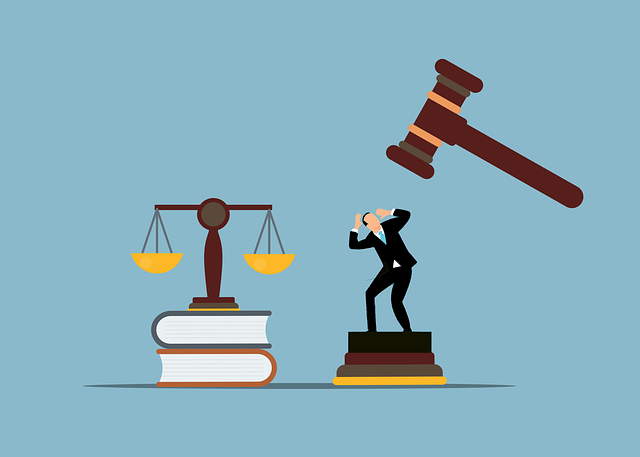Partnership disputes, common in business, arise from decision-making disparities, unequal contributions, or diverging visions, potentially leading to legal issues like breach of contract, misrepresentation, IP disputes, and unfair competition. Understanding these Common Causes of Partnership Disagreements is crucial for employing effective dispute resolution strategies, preserving business relationships, and achieving success through collaborative problem-solving or legal avenues such as negotiation, mediation, or jury trials.
“In the dynamic landscape of business, various litigation types emerge from the complex web of partnerships and transactions. This article unravels key legal battlegrounds that often arise in professional relationships. From understanding partnership disputes, where common causes like breach of contract and misrepresentation reign, to protecting intellectual property and upholding market integrity through unfair competition lawsuits—each case presents unique challenges. By exploring these litigation types, we aim to equip readers with insights into potential pitfalls and the importance of clear agreements.”
- Understanding Partnership Disputes: An Overview
- Breach of Contract: A Common Litigation Type
- Misrepresentation and Fraud: Protecting Trust in Business
- Intellectual Property Disputes: Defending Your Creative Work
- Unfair Competition and Anti-Trust Lawsuits: Market Integrity in Focus
Understanding Partnership Disputes: An Overview

Partnership disputes are a common occurrence in the business world, often arising from a variety of issues that can strain even the strongest alliances. Understanding these conflicts is crucial for any entrepreneurial endeavor. The unprecedented track record of successful partnerships heavily relies on open communication and clear agreements from the outset. However, as businesses grow and evolve, so do the complexities within them, leading to potential friction points.
The common causes of partnership disagreements include disparities in decision-making, unequal contributions, or conflicting visions for the company’s future. When these underlying issues go unresolved, they can escalate into full-blown disputes, impacting the overall success and reputation of the venture. Mastering dispute resolution strategies is essential to achieving extraordinary results, whether it involves mediating a peaceful settlement or winning challenging defense verdicts in court.
Breach of Contract: A Common Litigation Type

Breach of contract is a prevalent litigation type that arises from failures to uphold agreements, often representing common causes of partnership disagreements. When parties enter into a binding contract, they are obligated to fulfill their promises and duties as outlined in the legal agreement. However, disputes can emerge when one or both sides fail to meet these obligations. Across the country, these cases vary widely, reflecting the diverse nature of business partnerships and transactions.
Whether dealing with corporate and individual clients, a breach of contract can involve misunderstandings, intentional violations, or unforeseen circumstances that render performance impossible. In some instances, these issues may be resolved through negotiations or alternative dispute resolution methods like mediation. However, when efforts to resolve the matter amicably fail, jury trials become an option for both sides to present their cases and seek compensatory damages.
Misrepresentation and Fraud: Protecting Trust in Business

Misrepresentation and fraud are significant issues in business partnerships, often arising from misunderstandings or intentional deceit. These actions can lead to legal disputes, particularly when trust is breached. When partners provide false or misleading information about a company’s financial health, products, or services, it can result in severe consequences. Such misconduct is a common cause of partnership disagreements, as it undermines the very foundation of their collaboration.
For his clients, addressing these issues requires careful legal navigation. The goal is often to achieve a complete dismissal of all charges, ensuring that trust is restored and business relationships remain intact. An unprecedented track record of successful representation in such cases demonstrates the expertise needed to navigate these complex situations, allowing partners to move forward with renewed confidence.
Intellectual Property Disputes: Defending Your Creative Work

Intellectual Property disputes are a common cause of partnership disagreements, especially among creative professionals. Protecting your original work—whether it’s a patented invention, copyrighted content, or trademarked logo—is paramount for any business, from startups to established enterprises. These disputes often arise when one party alleges that another has used, copied, or reproduced their unique intellectual property without authorization.
In the face of such accusations, a robust defense strategy is essential. For corporate and individual clients alike, achieving extraordinary results in these cases requires a deep understanding of intellectual property laws and a proven track record. By employing experienced legal counsel, businesses can navigate complex issues, avoid indictment for copyright infringement, and safeguard their creative assets, ensuring long-term success and the freedom to continue innovating without fear of legal repercussions.
Unfair Competition and Anti-Trust Lawsuits: Market Integrity in Focus

Unfair competition and anti-trust lawsuits play a crucial role in maintaining market integrity, often arising from partnership disagreements that spiral out of control. These legal actions target businesses engaging in anti-competitive practices, such as price fixing, market division, or using proprietary information unfairly. Common causes of partnership disputes include differing business goals, misunderstandings over intellectual property rights, and conflicts over decision-making authority. When these disagreements escalate, they can lead to significant legal consequences, with cases often being resolved through jury trials.
The focus in these lawsuits is not just on the specific actions of individuals but also on their impact on the broader market. Anti-trust laws are designed to promote fair competition and protect consumers by preventing businesses from abusing their power or engaging in deceitful practices. As such, general criminal defense strategies may vary depending on the specific anti-trust allegations against a client, with the goal being to protect his clients’ rights and interests while ensuring full compliance with relevant laws.
In navigating various litigation types, understanding the common causes of partnership disagreements is paramount. From breach of contract to intellectual property disputes, each area requires tailored strategies to protect business interests and maintain market integrity. By recognizing and addressing these issues proactively, entrepreneurs can foster healthier partnerships and mitigate legal risks, ensuring their ventures thrive in a competitive landscape.






